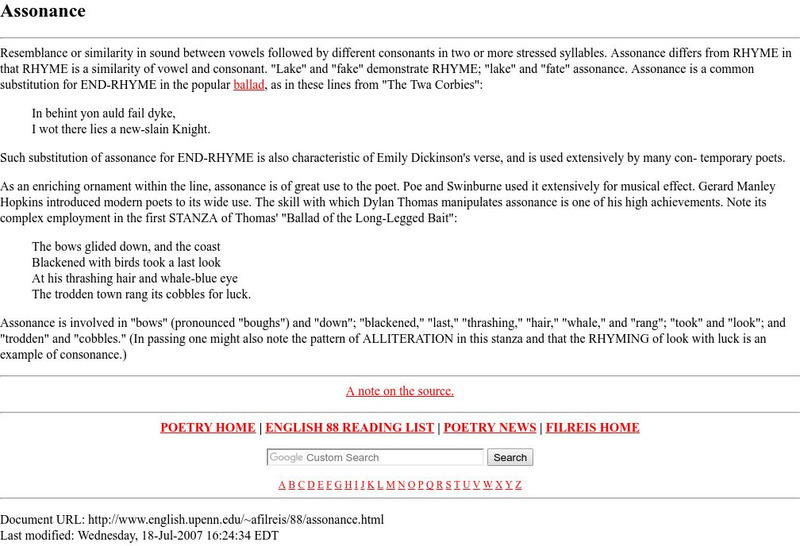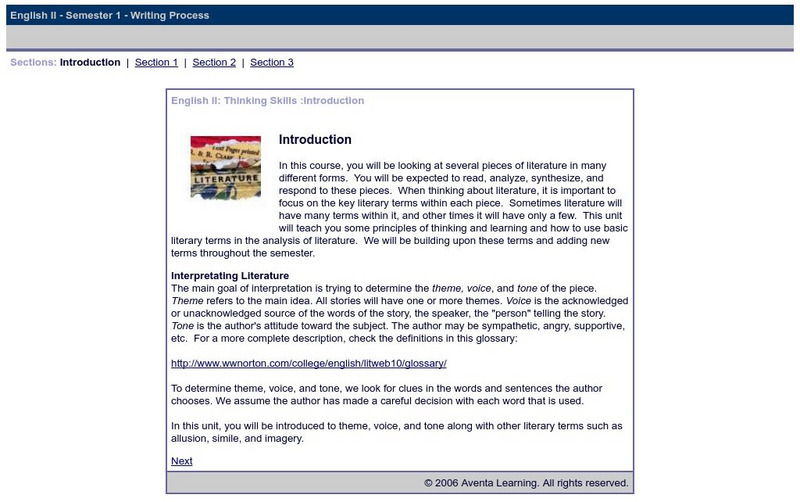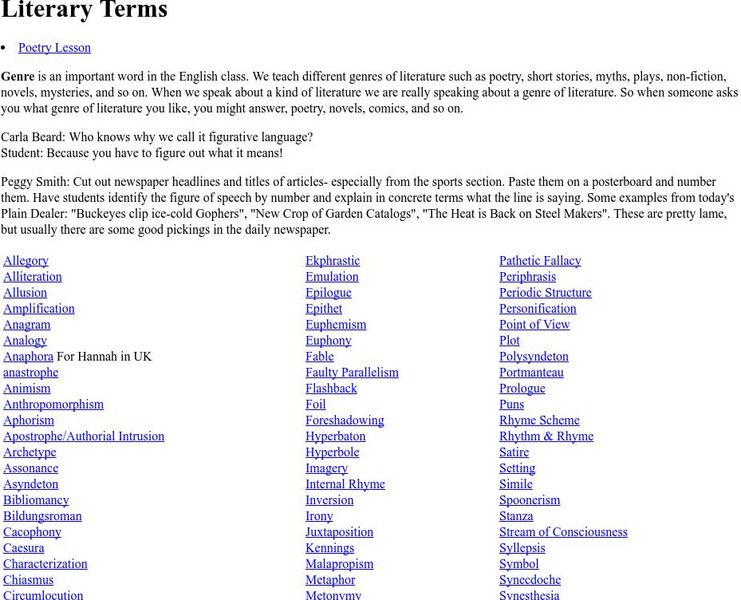E Reading Worksheets
E Reading Worksheets: Figurative Language Examples
Along with definitions for four types of figurative language, this learning module provides numerous examples. Similes, metaphors, personification, and hyperbole are the types of figurative language featured.
TES Global
Blendspace: Figurative Language
A twelve-part learning module on figurative language including links to images, videos, a song, and a game to help students learn.
Washington State University
Washington State University: Epigram/epigraph/ Epitaph/epithet
This site gives a definition of the word "epigram." It also includes a few examples of epigrams.
ClassFlow
Class Flow: Figurative Language Review
[Free Registration/Login Required] This lesson helps students understand figurative language.
ClassFlow
Class Flow: Poetry Figurative Language
[Free Registration/Login Required] This flipchart discusses various forms of poetry and gives examples of each. Figurative language is explored as a way of determining the meaning of a piece of literature.
E Reading Worksheets
E Reading Worksheets: Figurative Language: Reading Test 3
A ten-question quiz on recognizing similes, metaphors, hyperbole, and personification. Results can be printed, saved, or emailed.
Read Works
Read Works: Figurative Language
[Free Registration/Login Required] This site contains a collection of passage that include figurative language lessons. Each lesson includes questions to assess student understanding.
Sophia Learning
Sophia: Grammar Basics: Metaphors
Learn about similes and metaphors through this multimedia presentation. First view a slide show describing different types of metaphors as well as a simile. Then watch a video [3:13] showing similes and metaphors used in popular songs. A...
Sophia Learning
Sophia: Personification
Seven slides introducing and providing examples of personification. Slides also explain the purpose and impact of personification within a text, and examples come from "Rappaccini's Daughter" by Nathaniel Hawthorne.
TES Global
Blendspace: Figurative Language & Tone
A twelve-part learning module with links to texts, videos, and websites on figurative language and tone.
Houghton Mifflin Harcourt
Holt, Rinehart and Winston: Elements of Literature: Identifying Figures of Speech [Pdf]
A graphic organizer which allows students to document and list the figures of speech they identify in a given piece of literature. These include simile, metaphor, personification, and symbol, and require examples from the text.
University of Pennsylvania
University of Pennsylvania: Assonance
This resource provides a detailed explanation of the term "assonance." Several examples provided as well as links to related sites.
PBS
Wnet: Thirteen: I Have a Metaphor
This lesson plan not only examines the message of Dr. King, but also the words themselves. This is a lesson plan in identifying the literary devices that he used in his "I Have a Dream" Speech. It will introduce the following literary...
E Reading Worksheets
E Reading Worksheets: Figurative Language Worksheets
This learning module provides remediation and extra practice with identifying different types of figurative language. Reinforcement is provided through the worksheets, quizzes, video game links, and online sites for the following types...
Love To Know Media
Your Dictionary: Literary Terms Lesson Plan
This is a lesson plan for teaching the seven literary terms used in poetry: simile, metaphor, alliteration, imagery, hyperbole, personification, and onomatopoeia.
Department of Defense
Do Dea: Thinking Skills
In this self-guided course, you will be looking at several pieces of literature in many different forms. This unit will teach you some principles of thinking and learning and how to use basic literary terms in the analysis of literature....
Other
University of North Carolina: Glossary of Literary Terms
This site is provided for by the University of North Carolina at Pembroke. Over forty literary terms defined by college students, each with thorough examples.
Quizlet
Quizlet: Literary Elements/humorous Fiction Terms Flashcards
Literary elements are included in this review exercise. Flashcards are provided for the following words: allusion, antagonist, dialogue, flashback, imagery, protagonist, symbol, dialect, hyperbole, idiom, irony, parody, pun, sarcasm,...
Ted Nellen
Cyber English (By Ted Nellen): Literary Terms
This is an extensive glossary of literary terms.
Quia
Quia: Figurative Language Quiz
This 30-question quiz asks students to answer questions about figurative language by selecting the correct answer. Feedback is provided after the quiz is submitted. Java is required.
Other
St. Edward's University: Devices: Assonance/consonance
Defines and compares the use of assonance and consonance in poetry, with examples.
Other
Fu Jen Univ.: Poetic Elements: Denotation and Connotation: Figures of Speech
This site gives short definitions of the terms denotation and connotation. Also gives definitions for many figures of speech. Finally, includes discussion and study questions for a few poems at the bottom of the page. L.11-12.5b Nuance
PBS
Pbs Learning Media: Literary Elements and Techniques: Figurative Language
Discover how authors use figurative language to enhance their writing and explore the differences between similes and metaphors in this animated video [3:37] from WNET. Discussion questions below help students to further apply their...
Ted Nellen
Cyber English (By Ted Nellen): Consonance
This is a glossary entry for the term "Consonance" including the defintion and an example.



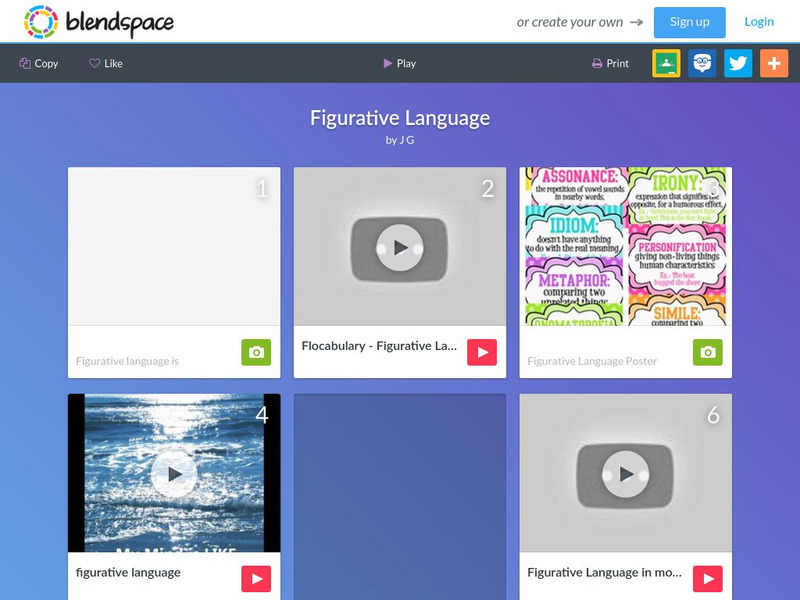


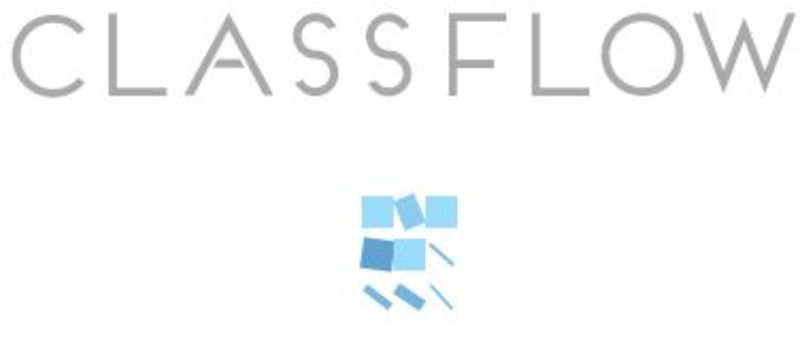
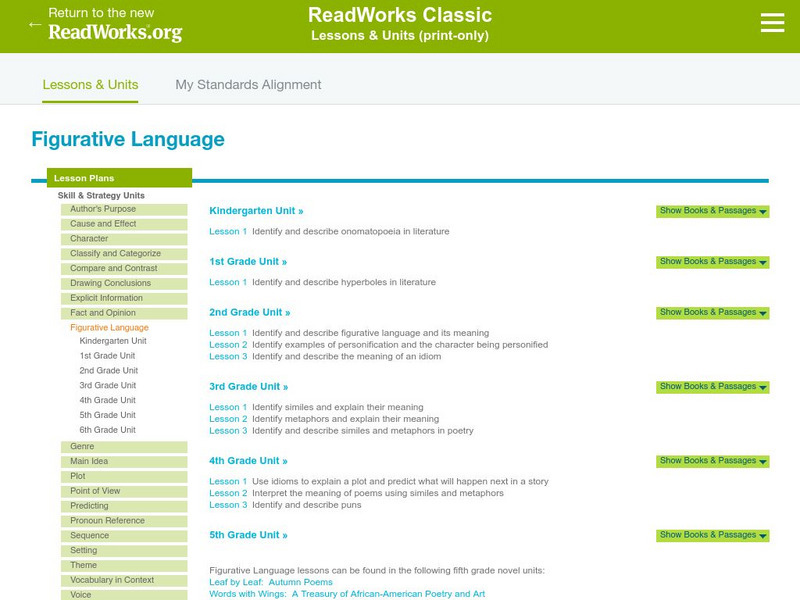
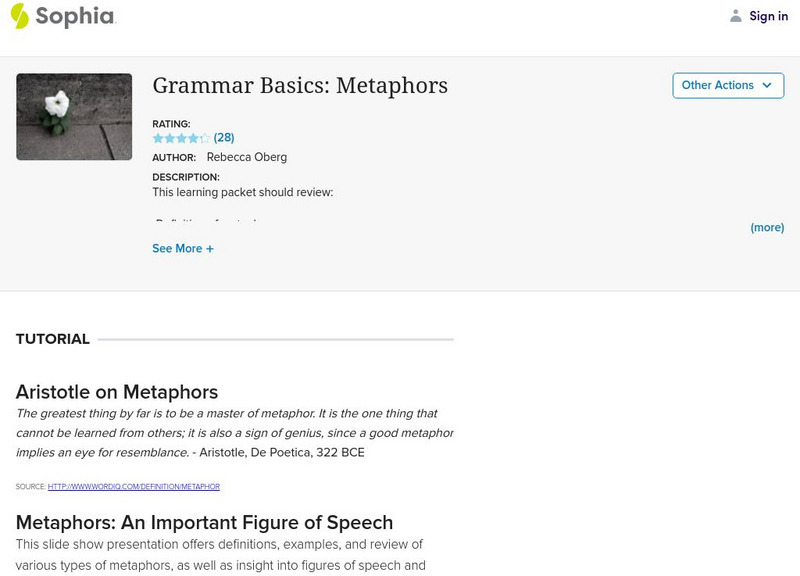
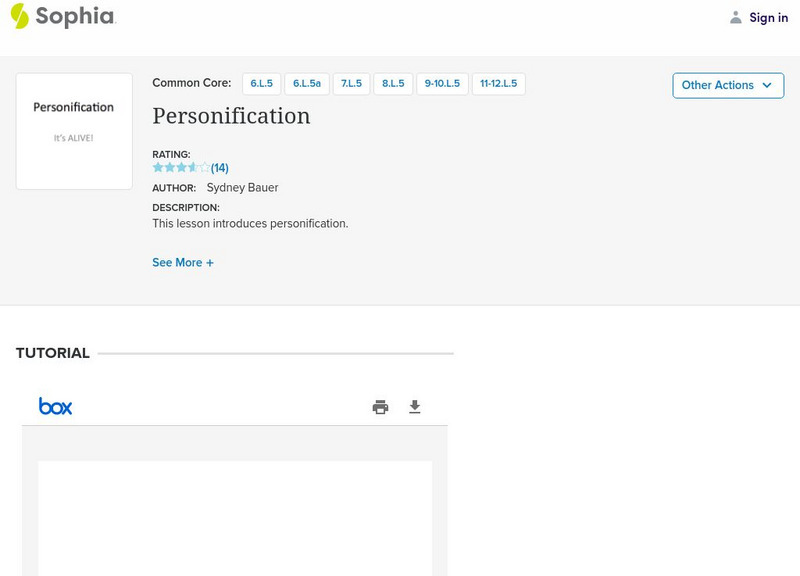

![Holt, Rinehart and Winston: Elements of Literature: Identifying Figures of Speech [Pdf] Graphic Holt, Rinehart and Winston: Elements of Literature: Identifying Figures of Speech [Pdf] Graphic](http://content.lessonplanet.com/resources/thumbnails/410154/large/bwluav9tywdpy2symdiwmduymc0yotywmi1ondh3nneuanbn.jpg?1589985628)
